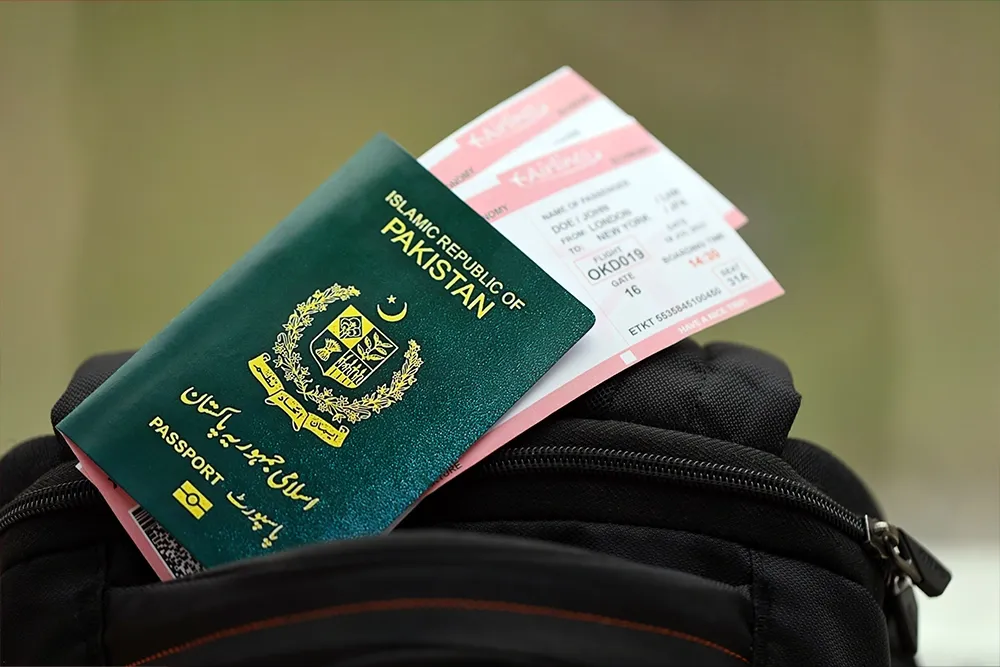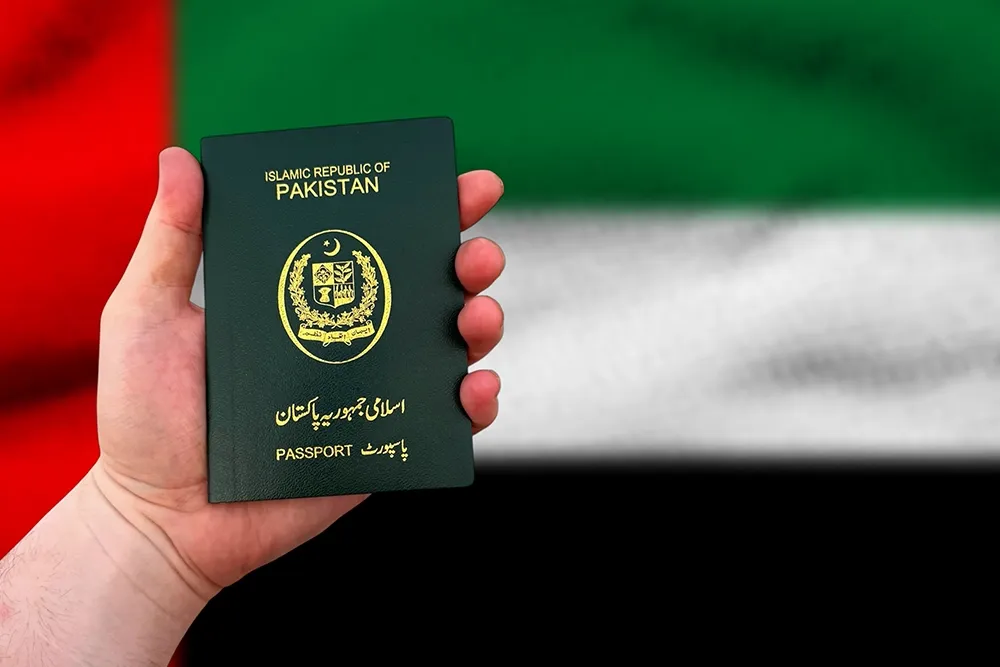As 2025 sets in, overseas employment for Pakistan nationals gets tougher: from strict verification at airports and the need for an affidavit to scrutiny of recruitment channels, the dynamics change with regard to overseas workers. The blog will explain what's the new rule for Pakistani work visas, what a traveller should know before leaving, and how smoothly one can get through with the change.
Overseas employment in the Gulf states of the UAE, Saudi Arabia, and Qatar has long been a mainstay of livelihood for millions of Pakistanis. They form the backbone of the country's remittance economy, sending back billions every year.
But this process for leaving for work abroad got complicated in 2025 when FIA introduced a new rule for Pakistani work visas that requires employee to take an affidavit signed by a Grade 18 or 19 government officer, specifying that a person will intend to work legally and not attempt to enter Europe or any other region through irregular migration routes.
Though the rule is yet to be set in motion, so far it has caused much confusion and delay for the passengers, especially in the main airports in Lahore, Karachi, and Islamabad.
Why The FIA Rule Was Introduced
Officials frame the move as part of broader efforts to combat human trafficking and illegal immigration. Over recent years, there have been numerous incidents of individuals holding valid work or visit visas for the Gulf attempting to use these to mask entry into Europe via Libya, Turkey or Baku.

Dozens of passengers are being offloaded daily, the FIA says, either for not producing the required affidavit or mismatching in a document mismatch. Local media reported that in only one week, close to 150 travellers had reportedly been stopped from boarding.
This Pakistan work visa new rule had some differences of opinion, while the authorities insist the rule shields Pakistan's reputation abroad, critics say it places a disproportionate burden on genuine workers-many of whom have invested heavily in recruitment fees, medical checks, and travel costs.
Impact on Workers and Recruitment Agencies
The sudden introduction of work visa regulations Pakistan has caused considerable uncertainty: many travellers show up at the airports with valid employment visas and contracts in hand, only to be turned away for a document they were never told about.
Though the Protectorate of Emigrants has since deputed inspectors at key airports to facilitate the verification process, confusion remains, particularly among those who travel through private recruitment agencies rather than through government-linked agencies such as the Overseas Employment Corporation, also known as OEC.
Checks of OEC system workers more often get cleared because their documentation has been verified by the government, while private agents have to deal with longer verification times and more questioning.
What this will mean for you in 2025
As Pakistani work visas continue to evolve, understanding the new rules for Pakistani work visas is vital. If you're a Pakistani national looking to work abroad this year, here's what you should bear in mind:
Get the affidavit as soon as possible from a nominated Grade 18/19 officer to avoid last-minute disruptions.
Employ licensed recruitment agencies. Ensure your agent is listed with the Bureau of Emigration & Overseas Employment.
Complete documentation: keep copies of your work visa, your contract, your CNIC (Computerised National Identity Card), your passport (make sure to check the validity or renew your Pakistani passport timely), and protectorate documents.
Arrive at the airports well in advance because verification takes more time compared to earlier, and especially when the airports are busiest.
These might sound like time-consuming stages, but they are very important in preventing detention or being offloaded at immigration counters. The signed affidavit rule for Pakistanis might sound like an extra layer, but it ensures credibility and legal protection once workers land in their destination countries.
The Bigger Picture - Labour Mobility in Transition
Accordingly, work visas are still available within the UAE, but applications by Pakistani nationals are subjected to greater scrutiny in order to establish the validity of the employment and stay. The Government of Pakistan has also started more awareness drives on illegal migration or "donkey routes" after unfortunate incidents in the last two years. It is part of a broader crackdown, which also includes increased surveillance at airports and the requirement of a new affidavit.

Meanwhile, the workers who migrate legally are getting increasing protection. Establishment of special courts for overseas Pakistanis and announcement of intention for a digital overseas employment platform-all these points point to the fact that the government wants to make legal migration easy and discourage hazardous alternatives.
To Conclude,
Once abroad, adjustment to a new environment is tough considering the number of regulations navigated at home, which is where Beno comes in, be it renting a car for the first week in Dubai, booking a yacht getaway, or exploring scenic UAE coastlines on days off, Beno has curated services, while the reason for your journey abroad may be work, the experience should include joy, adventure, and ease.
It may appear as a stumbling block, but equally, it reflects an increasing initiative by Pakistan to ensure migration is legitimate, safe, and skilled. With some planning and adherence to rules and regulations, and with cooperation from good agencies, movement abroad could remain seamless.
Whether it's stricter screening or the signed affidavit rule for Pakistanis, these measures show the country’s commitment to fair, transparent and safe overseas employment.
FAQs
- In 2025, are work visas in the UAE available for workers from Pakistan?
Yes, the citizens of Pakistan can still apply for a UAE work visa, provided their documents are authentic and attested. This new rule for Pakistani work visas brings in an added layer of verification and not a ban.
- What is the new affidavit rule?
Workers will have to produce, before flying abroad for work, an affidavit by a Grade 18/19 government officer about their intention to work legally.
- Does this rule apply to the holders of visit visas, too?
The requirement of the affidavit affects only those who travel on work visas.
- How can I avoid being offloaded?
Ensure all your documents are complete, go through an authorised recruitment agency, and carry your affidavit. It also helps to come early and be transparent with immigration officers.
- Which sectors would most likely need Pakistani workers in 2025?
Construction, health care, and hospitality still dominate the most in-demand sectors, but Gulf employers do show a greater preference for workers who have technical or vocational certifications.










